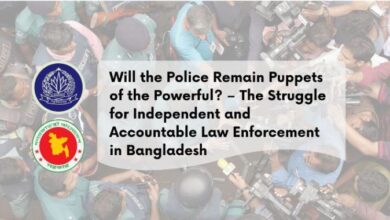1971 Liberation War: The Dark Side of India’s Help in Bangladesh’s Struggle

The Celebrated Narrative vs. the Hidden Truth
When the 1971 Liberation War began, India was hailed as Bangladesh’s savior. Textbooks, speeches, and global media celebrated India’s intervention. But behind this story lies a darker reality. India’s actions were shaped by cold strategy, not compassion. Its goal was regional dominance, not Bangladesh’s independence.
Breaking Pakistan: India’s First Motive
India saw the war as a golden chance to cripple Pakistan. By supporting East Pakistan’s secession, Delhi weakened its long-time rival. Ten million refugees gave India moral cover, but Delhi used the crisis to win international sympathy. India’s true intention was to redraw South Asia’s map in its favor.
A Treaty That Restricted Sovereignty
Independence brought a new struggle. In March 1972, Dhaka signed the Treaty of Friendship with Delhi. For war-weary Bangladeshis, it seemed a shield. In reality, it was a leash. The treaty bound Dhaka’s foreign policy to India, reducing its diplomatic freedom and independence.
Economic Dependency by Design
Bangladesh’s economy was shattered by war. India filled the void but tilted trade in its favor. Bangladeshi markets overflowed with Indian products while Dhaka’s exports faced barriers. India’s “partnership” locked Bangladesh into dependency, weakening its ability to build competitive industries.
Water Politics and Betrayal
India’s construction of the Farakka Barrage in the 1970s revealed its self-interest. Water diversion devastated Bangladesh’s southwest region, causing ecological and agricultural decline. Later disputes over the Teesta River followed the same pattern—promises unfulfilled, agreements blocked, and Bangladesh left vulnerable.
Political Influence and Silent Endorsement
India also shaped Bangladesh’s politics. Delhi backed Sheikh Mujibur Rahman because he kept Dhaka aligned with Indian interests. When Mujib imposed one-party rule in 1975, India stayed silent. Democracy was irrelevant to Delhi as long as Bangladesh remained compliant.
Border Violence and Double Standards
While India spoke of friendship, its Border Security Force killed countless Bangladeshi civilians. Farmers, traders, and even children died along the frontier. Instead of peace, Bangladesh faced a militarized and hostile border.
Attempts to Break Free
After Mujib’s assassination, leaders like Ziaur Rahman and Ershad tried diversifying foreign ties. They reached out to China, the US, and Pakistan. But India’s economic leverage and geographic control forced Dhaka to compromise repeatedly. Independence from India’s shadow proved elusive.
The Hasina Era: Loyalty Rewarded
Sheikh Hasina’s return to power in the 1990s deepened India’s influence. Her government prioritized Delhi’s interests, especially in security. Bangladesh cracked down on Indian insurgents but gained little on water or trade. The Teesta deal remains undelivered despite repeated promises.
Economic Grip Tightens
India expanded its dominance through energy projects, transit facilities, and trade deals. Indian corporations profited while Bangladesh faced persistent trade imbalance. Non-tariff barriers blocked Dhaka’s access to Indian markets, cementing dependency further.
Democracy Undermined
India also shielded Hasina during flawed elections in 2014 and 2018. Global observers called them unfair, but Delhi endorsed her government. India’s support echoed its silence during Mujib’s authoritarian rule. Democracy mattered less than loyalty.
A Lesson for Bangladesh
India’s 1971 intervention was not an act of altruism. It was a calculated move to destroy Pakistan and secure dominance. Over five decades, India has prioritized its interests through treaties, trade imbalances, water disputes, border killings, and political influence.
Bangladesh’s liberation was won by its own people, not gifted by India. True independence means freedom from domination. Unless Bangladesh breaks the cycle of dependency, its sovereignty will remain incomplete—trapped in the shadow of its powerful neighbor.






